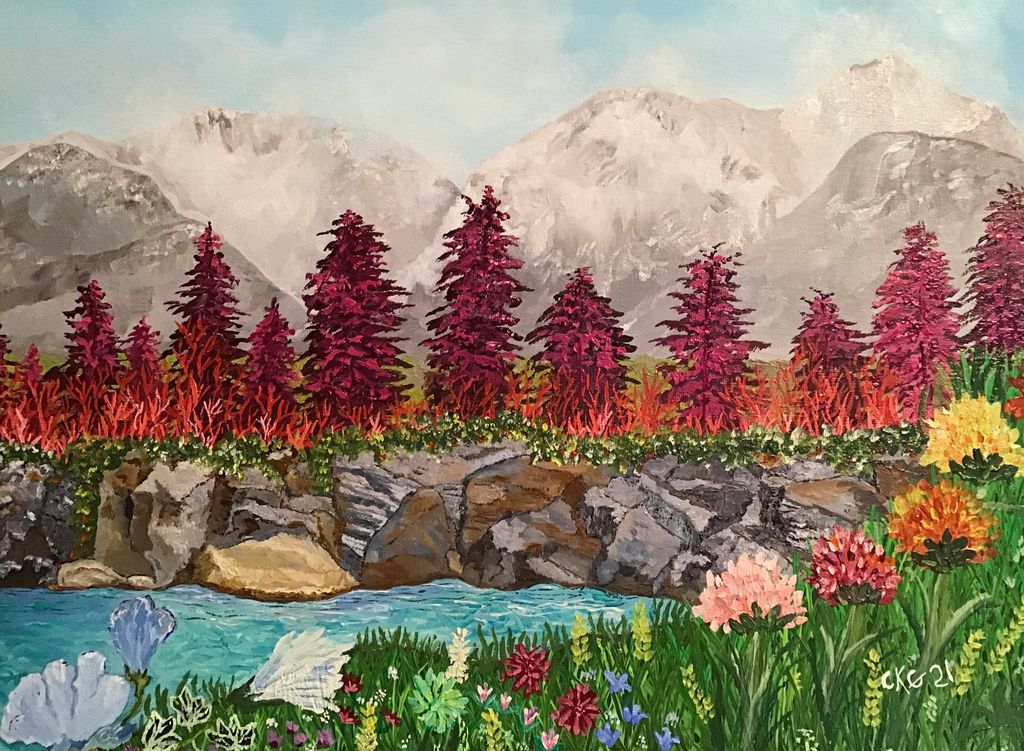The art market is a global industry, and US art exporters often face unique challenges when conducting business in the Netherlands. From navigating customs regulations to overcoming language barriers, there are several factors that can complicate the payment process. In this article, we will explore the key challenges faced by US art exporters in the Netherlands and provide insights on how to overcome them.
Key Takeaways
- US art exporters in the Netherlands face challenges related to customs regulations, VAT, import duties, insurance coverage, and shipping services.
- Building strong relationships with Dutch art dealers is essential for success, and this can be achieved through trust, fair pricing, cultural understanding, and ensuring the authenticity of artwork.
- Language and communication barriers can be overcome by using translation services, effective communication strategies, and cultural sensitivity.
- Navigating legal and tax considerations requires understanding Dutch art laws, complying with international trade regulations, considering tax implications, and seeking legal expertise.
The Challenges of US Art Exporters in the Netherlands
Navigating Dutch Customs Regulations
When it comes to exporting art to the Netherlands, we understand the importance of navigating Dutch customs regulations. It can be a complex process, but with our expertise, we ensure a smooth transition for your artwork. From understanding the required documentation to complying with import restrictions, we handle it all. Our goal is to make the customs clearance process as seamless as possible, so you can focus on your art business.
Understanding VAT and Import Duties
When it comes to VAT and import duties, we need to be well-informed and prepared. These fees can significantly impact the cost of exporting art to the Netherlands. It is crucial to understand the Dutch customs regulations and the specific requirements for importing art. We must ensure that we comply with all the necessary paperwork and declarations to avoid any delays or penalties.
To navigate these challenges, we recommend the following:
- Research and understand the VAT and import duty rates applicable to art exports.
- Consult with a tax expert or customs broker to ensure compliance with Dutch regulations.
- Keep accurate records of the value and origin of the artwork to facilitate smooth customs clearance.
Tip: Properly calculating and budgeting for VAT and import duties can help us avoid unexpected costs and ensure a smooth export process.
Securing Proper Insurance Coverage
When it comes to securing proper insurance coverage, reliable and comprehensive policies are essential. We understand the importance of protecting your valuable artwork during transit and while it is in the Netherlands. Our team works closely with reputable insurance providers to ensure that your artwork is covered for any potential damage or loss.
In addition to insurance, it is also crucial to have a detailed inventory of your artwork, including photographs and descriptions. This will help facilitate the claims process in case of any unfortunate incidents.
To further mitigate risks, consider implementing a secure packaging and handling protocol. This includes using appropriate materials and techniques to protect your artwork from potential damage during transportation.
Remember, proper insurance coverage is a crucial aspect of protecting your investment and ensuring peace of mind throughout the art export process.
Finding Reliable Shipping Services
When it comes to shipping our valuable artwork, we understand the importance of finding reliable shipping services. Trust is key in this process, as we want to ensure that our artwork arrives safely and on time. We carefully research and select shipping companies that have a proven track record in handling delicate and valuable items. With their expertise, we can have peace of mind knowing that our artwork is in good hands.
Building Relationships with Dutch Art Dealers
Establishing Trust and Credibility
When building relationships with Dutch art dealers, trust is paramount. We understand the importance of establishing a solid foundation of trust and credibility with our partners. This is achieved through open and transparent communication, delivering on our promises, and consistently providing high-quality artwork.
To further solidify our credibility, we actively seek out opportunities to collaborate with reputable art institutions and participate in well-known art events. By associating ourselves with established names in the art world, we demonstrate our commitment to excellence and gain the trust of potential buyers.
In addition, we prioritize building long-term relationships with Dutch art dealers. By nurturing these relationships over time, we foster a sense of loyalty and reliability. This allows us to work closely with our partners, understanding their preferences and needs, and ultimately delivering a seamless and trustworthy experience for both parties.
To summarize, establishing trust and credibility is the foundation of our approach when working with Dutch art dealers. Through open communication, collaboration with reputable institutions, and nurturing long-term relationships, we ensure that our partners have confidence in our expertise and integrity.
Negotiating Fair Prices
When it comes to negotiating fair prices, we understand the importance of finding a balance that satisfies both parties. Our experienced team of negotiators is skilled in navigating the intricacies of the art market to ensure that we secure the best possible deal for our clients. We take into account factors such as the artwork’s value, market demand, and the artist’s reputation to determine a fair price. We also consider the buyer’s budget and preferences to facilitate a successful negotiation process.
Managing Cultural Differences
When working with Dutch art dealers, we understand the importance of managing cultural differences. Respecting their customs and traditions is key to building strong relationships. We take the time to learn about their etiquette and social norms, ensuring smooth communication and mutual understanding. Additionally, we embrace the diversity of the art world and appreciate the unique perspectives that different cultures bring. By fostering an inclusive environment, we create opportunities for collaboration and growth.
Ensuring Authenticity of Artwork
When it comes to ensuring the authenticity of artwork, we understand the importance of thorough verification processes. Authenticity is key in the art world, and we take it seriously. Here are some steps we take to ensure the artwork we deal with is genuine:
- Conducting extensive research on the artist and their body of work
- Examining provenance documents and certificates of authenticity
- Consulting with experts and specialists in the field
Tip: Trust your instincts and be wary of suspiciously low prices or questionable sources. Authentic artwork is worth the investment.
Overcoming Language and Communication Barriers
Language Challenges in Art Transactions
When conducting art transactions in the Netherlands, effective communication is crucial. It is important to overcome language barriers and ensure that both parties understand each other clearly. Cultural sensitivity is also key in communication, as it helps to build trust and avoid misunderstandings. Utilizing translation services and interpreters can greatly facilitate communication and bridge the language gap. By being mindful of language challenges, we can foster better relationships with Dutch buyers and navigate the art market more effectively.
Effective Communication with Dutch Buyers
When communicating with Dutch buyers, clear and concise language is key. We strive to use simple and straightforward phrases to ensure effective communication. Additionally, it is important to listen actively and ask clarifying questions to ensure mutual understanding. We understand the importance of cultural sensitivity in communication and adapt our approach accordingly. Our goal is to build strong and lasting relationships with Dutch buyers based on trust and open communication.
Translation Services and Interpreters
When it comes to language barriers, translation services and interpreters are invaluable. They help us bridge the gap and ensure effective communication with Dutch buyers. Whether it’s translating important documents or facilitating conversations, their expertise is crucial in navigating the art market in the Netherlands.
In addition to language proficiency, cultural sensitivity is also essential. Understanding the nuances and customs of the Dutch culture can make a significant difference in building relationships and closing deals.
To ensure smooth transactions, we rely on professional translation services and interpreters who are well-versed in the art industry. Their expertise allows us to overcome language barriers and establish trust with our Dutch counterparts.
When working with translation services and interpreters, it’s important to provide clear instructions and context to ensure accurate translations. Effective communication is key to avoiding misunderstandings and building strong connections in the Dutch art market.
Cultural Sensitivity in Communication
In our interactions with Dutch buyers, we prioritize cultural sensitivity to ensure effective communication. We understand that cultural norms and communication styles may differ, so we approach conversations with an open mind and a willingness to adapt. It is important to be aware of subtle nuances and avoid making assumptions. Active listening is key to understanding the needs and expectations of our Dutch counterparts.
To foster a positive and respectful exchange, we follow these guidelines:
- Use clear and concise language
- Be patient and allow for pauses in conversation
- Avoid interrupting or speaking over others
- Seek clarification when needed
Remember, building strong relationships is based on mutual respect and understanding. By embracing cultural sensitivity, we can navigate language and communication barriers more effectively.
Navigating Legal and Tax Considerations
Understanding Dutch Art Laws
When it comes to Dutch art laws, we need to be well-informed and prepared. It is crucial to understand the legal framework and comply with the regulations in order to avoid any potential issues. Seeking legal advice and expertise can provide us with the necessary guidance to navigate through the complexities of Dutch art laws. Additionally, staying updated on any changes or updates in the legal landscape is essential for our operations.
Tax Implications for US Art Exporters
When exporting art from the US to the Netherlands, it is important to consider the tax implications. Understanding the tax regulations and requirements can help us navigate the process smoothly. Here are some key points to keep in mind:
- Import Duties: The Netherlands imposes import duties on certain art items. It is essential to be aware of these duties and factor them into the pricing.
- VAT: Value Added Tax (VAT) is applicable to art transactions in the Netherlands. We need to understand the VAT rates and ensure compliance.
- Tax Reporting: Proper tax reporting is crucial for US art exporters. Familiarize ourselves with the reporting obligations and deadlines.
Navigating the tax landscape can be complex, but with the right knowledge and guidance, we can ensure compliance and avoid any unnecessary penalties or delays.
Complying with International Trade Regulations
Complying with international trade regulations is crucial for US art exporters in the Netherlands. It ensures smooth and legal transactions between countries. We understand the complexities involved in navigating these regulations and strive to stay up-to-date with any changes or updates. Our team is well-versed in the necessary paperwork and documentation required for international art exports.
Seeking Legal Advice and Expertise
When it comes to seeking legal advice and expertise, we understand the importance of finding a knowledgeable partner. Our experienced team of collectors and network attorneys are well-versed in the intricacies of international art trade regulations and Dutch art laws. We can provide guidance on navigating legal considerations and ensuring compliance with all necessary regulations. Additionally, we offer specialized solutions for tax implications that US art exporters may face when exporting artwork to the Netherlands. Our expertise in this area can help you make informed decisions and avoid potential legal pitfalls.
- Guidance on navigating legal considerations and compliance
- Specialized solutions for tax implications
- Expertise in international art trade regulations and Dutch art laws
Tip: It is recommended to seek legal advice and expertise from professionals who have experience in the art industry and international trade regulations.
Navigating legal and tax considerations is crucial for any business. Understanding the laws and regulations surrounding debt collection can help ensure compliance and avoid legal issues. Additionally, being aware of the tax implications of debt collection activities can help businesses make informed financial decisions. At Debt Collectors International, we specialize in providing debt collection solutions that are simple and effective. Our team of experts is well-versed in the legal and tax considerations of debt collection, and we can help navigate these complexities for your business. Contact us today to learn more about how our services can simplify your debt collection process.
Frequently Asked Questions
What are the customs regulations for exporting art from the US to the Netherlands?
US art exporters need to navigate the Dutch customs regulations when exporting art to the Netherlands. This includes understanding the required documentation, import restrictions, and any applicable fees or taxes.
What is VAT and import duties, and how do they affect US art exporters?
VAT (Value Added Tax) and import duties are taxes imposed on imported goods. US art exporters need to understand these taxes and factor them into the pricing and financial considerations when exporting art to the Netherlands.
How can US art exporters secure proper insurance coverage for their artwork in the Netherlands?
US art exporters should ensure that their artwork is properly insured during transportation and while it is in the Netherlands. This can be done through specialized art insurance providers or by working with shipping companies that offer insurance options.
What should US art exporters consider when finding reliable shipping services to the Netherlands?
When exporting art to the Netherlands, US art exporters should consider factors such as the shipping company’s experience in handling artwork, their reputation, insurance options, and the ability to track and monitor the shipment.
How can US art exporters establish trust and credibility with Dutch art dealers?
Building relationships with Dutch art dealers requires establishing trust and credibility. This can be achieved through consistent communication, delivering high-quality artwork, honoring agreements, and demonstrating professionalism.
What are some strategies for negotiating fair prices with Dutch art dealers?
Negotiating fair prices with Dutch art dealers involves researching market values, understanding the demand for specific artworks, and being prepared to negotiate based on factors such as the artwork’s condition, provenance, and rarity.





